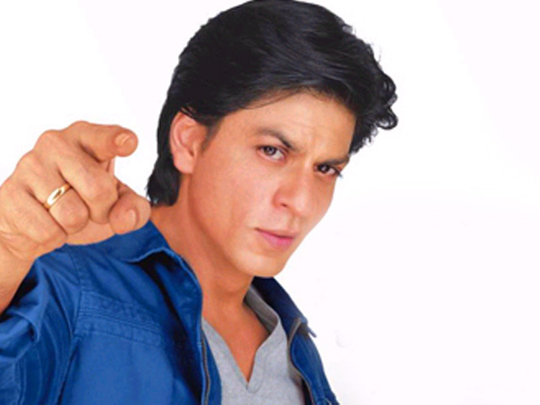
If you are a Bollywood movie fan you would have noticed posters of ‘King Khan' adorning Dubai's streets, plugging a face cream that can turn men ‘fair' and ‘handsome'.
Shah Rukh Khan, or SRK, is a one-man conglomerate, raking in millions in box-office takings every year, and what he says or does is followed avidly by his fans across the globe.
He also makes millions endorsing products as diverse as computers and basmati rice. Last year he was the first male star to feature in a Lux soap advert, sitting in a bathtub and dreaming about Bollywood starlets.
SRK is neither a fair nor handsome man, and he has never considered himself to be good looking. He said as much in an interview given to a British newspaper as he recalled his debut in a TV series in the late 80s, and thanked the "Asian people" for making him such a powerhouse in the movie business.
But the movie star is extremely charismatic. A colleague of mine who interviewed him said gushingly later that he draws you in with his charming personality.
It seems unethical, to say the least, for a man of his stature to endorse the bias that most Indians have against dark-skinned people.
When the face cream was stocked in British supermarkets three years ago, TV actor Rani Moorthy recalled the age-old Indian prejudice against dark skin. She said her grandmother one day took her aside and urged her to become good at something. "No man will marry you for your looks," she was told.
The actor who featured in the series Coronation Street said, "I knew this was because I was dark skinned. It was treated as a disease. Dark skin is regarded as low status and low caste."
Look at any matrimonial advert in an Indian newspaper today and you will see that the women, besides giving personal information such as height, weight, eating habits (‘veg' for vegetarian or ‘non-veg') also invariably describe their complexions as ‘wheatish', meaning ‘fair'.
Incidentally, you will notice that none of the Indian matrimonial adverts ask for a tall, ‘dark', handsome man.
You can watch the TV advert for the skin-lightening cream on YouTube. You see a man who has no luck with women because his skin is darker than that of his friends and the girl he adores. SRK then hands him the cream. In a few weeks the man's skin is lighter and girls start falling all over him.
But it seems Indians are not the only people prejudiced about skin colour. The organisers of a beauty event that will be held in Dubai in June say the skin-lightening market is growing in this region, "where having light, porcelain-like skin is considered ideal by Arab women." In the Arab world, beauty is defined by the whiteness and suppleness of a woman's skin, says a press release for the event. Adverts on Arabic TV channels also promote the notion that fairer skin is desirable.
For Arab women, maintaining the flawlessness of their skin is the most important factor of their everyday beauty regime. The release goes on to say that it is estimated that Emirati women alone spend close to Dh1 billion per year on beauty products and treatments.
One trend in the skin-whitening market is the huge increase in the use of such creams by men. According to one Asian study, men primp for 20 minutes in front of the mirror, while women take slightly less time — 18 minutes.
Doctors say claims that such creams can make your complexion fairer are baseless. All they do is provide moisture and certain nutrients. Cheaper creams contain bleach, which can disfigure your skin.










